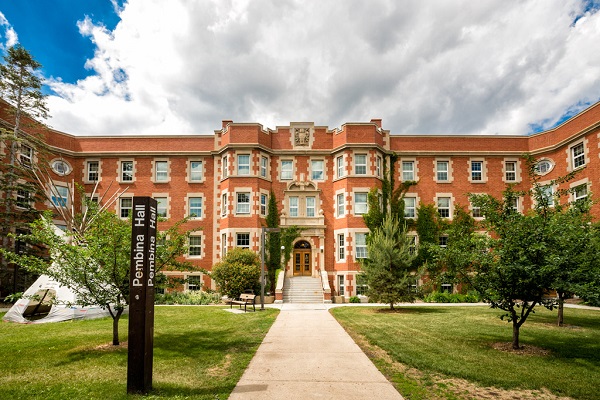University of Alberta scholars highlight a sustainable summer
Alberta is the biggest honey producer in Canada and has the most honey bees, however, the health and population of the powerful pollinator is under threat. Bee expert Olav Rueppell researches the insect’s biggest threats and has tips to ensure honey bees thrive.
Canada is dealing with a destructive start to the wildfire season. Jen Beverly shares how communities can determine how vulnerable they are to wildfires. Dr. Tara McGee can discuss wildfire mitigation, preparedness, and evacuations. She is also co-lead of the First Nations Wildfire Evacuation Partnership. Dr. Stephen Wong researches evacuation behaviour, resilient transportation, and strategies for communities to improve evacuation planning. He leads the Resilient and Sustainable Mobility and Evacuation (RESUME) Group.
A new campaign spinning out of the Department of Human Ecology raises awareness about Line Dry July. The upcoming social media campaign asks people to avoid using their tumble dryer for the month of July and hang their laundry to dry instead, either indoors or outdoors. Textile scientist Rachel McQueen shares how line drying saves energy and benefits your clothes.
A pair of researchers at the U of A have a garden on campus with a potentially revolutionary purpose. The goal of Guillermo Hernandez Ramirez and Camila Quiroz is to grow spinach under solar panels to produce food and energy at the same time through a relatively new sustainability practice called agrivoltaics. Photos of the lab are available upon request.
Sven Anders is studying public perceptions and preferences for Carbon Capture and Storage (CCS), including how people think about CCS-induced earthquakes. Another area of research for Anders involves working with small Vietnamese coffee and pepper farmers on adapting to climate change and increasingly unsustainable production practices as fertilizer costs increase. Prof. Anders is available for interviews starting July 10.
A number of beach destinations have banned sunscreen with ultraviolet filters (UVF) due to environmental concerns. However, a recent study by U of A researchers found sunscreen with UVF is not as harmful on freshwater ecosystems as first thought. Lead author Aaron Boyd says a species of water fleas acclimatized to the contaminants over time and mortality rates along with other indicators of toxicity dropped with each generation of the species.
Blue-green algae is a yearly concern for Albertans looking for a dip in the lake. The blooms produce toxins that can be harmful to humans and fatal to pets. Freshwater ecologist Rolf Vinebrooke shares how to enjoy the lake safely. He also studies Alberta’s mountain lakes and how the rapid rates of warming at higher elevations impacts the colour and ecology of the water.

